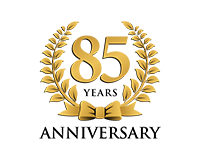Diploma on
Classroom Management & Psychology for Teachers
Without sound classroom skills even the most talented teacher will fail to achieve their teaching goals; this Program shows how implementing modern pro-active practices and classroom structure improves teaching and makes you a more successful teacher.
This Program teaches how to become an exceptional teacher, to manage classrooms to support, motivate and encourage students, achieve academic improvement and prevent misbehaviour. It is filled with practical advice and strategies for managing classes, student behaviour and psychology, discipline, teaching style, lesson-planning and student safety. It combines the best practices of general and special education for managing students, including those who are culturally diverse and those with special needs.
ALSO:
(1) Anybody enrolling for this Programme before 31st December 2024 will also be enrolled FREE for a Course on Strategy, Quality & Contemporary Business Concerns; the only requirement is that you provide your personal email address to the College on enrolment.
(2) During the “Covid-19” (Corona) virus pandemic and in lock-down periods, affected Members may be allowed to take Assignments (home-based course work) instead of or in addition to sitting Examinations to complete the Programme; details can be provided on request after enrolment onto the Programme.
- Summary of major topics
- What is included
- Related courses
- Study & Career development
Module 1 - Education, Teaching and the Classroom
- What education involves, its purpose, teachers and educators, pupils and students
- Classrooms, the teaching environment, classes and forms, features of effective teachers
- Classroom management, skills, techniques, factors which facilitate learning, educational psychology
- Courses of study, curriculum, lesson content, design, plans, syllabuses, learning objectives
Module 2 - Building a Classroom Community
- School and classroom communities, teacher actions and behaviour, valuing students, safety
- Meetings, assemblies, classroom routines, rules and procedures, their aims and importance
- Teacher communication, helping students communicate, supporting students, encouraging participation
- Classroom behaviour, disruptive students, respect and courtesy, building students’ trust
Module 3 - Maslow’s ‘Hierarchy of Needs’ applied to Education
- The basis of Maslow’s theory, categories of needs, lower and higher order needs
- Students’ physiological, and biological needs, their safety/security needs, how teachers might help
- Students’ belonging needs, students’ self-esteem needs, teacher help, support and activities
- Students’ self-actualisation needs, fulfilment and goals, group projects, preparing for learning
Module 4 - Student Motivation
- Motivation, motivations, motivators, ow motivation affects learning and behaviour
- Theoretical perspectives of motivation, biological, social and personal motives, aspirations, attitudes
- Intrinsic and extrinsic motivation, incentives and tangible rewards, possible problems
- Praise as a motivator, getting students excited about learning, incentives, creativity, real-life
Module 5 - Learning and Memory
- Learning through perception, visual, auditory and kinesthetic learners
- Cognitive learning skills, cognitive learning processes, attention spans, short and long-term memory
- Mnemonics, improving students’ memories, lesson formats, cues and prompts, handouts
- Active reading, retrieval practice, graphic organisers, attracting and holding students’ attention
Module 6 - Student Engagement
- Student engagement, reasons to strengthen engagement, methods of encouraging student engagement
- Drawbacks of standardised teaching, why students fail, using a variety of strategies and resources
- Students’ participation styles, facilitating learning experiences, problem-solving, critical thinking
- Advancing students through educational stages, the student-teacher-lesson relationship
Module 7 - Teacher Styles and Styles of Teaching
- Dr Grasha’s teaching style inventory, advantages and disadvantages of each teacher style
- Different styles of teaching, the right style for a teacher’s character, utilising the style best for students
- Hybrid or blended style, differentiated instruction, student-focused differences, co-operative learning
- Passive learning, active or participatory learning, the learning pyramid, theme-based teaching
Module 8 - Lesson Planning and Preparation
- Learning objectives, skills, knowledge and attitudes, learning outcomes, assessing achievements
- Lesson planning, strategies, introduction, activities, student understanding, conclusions, timelines
- Asking pertinent questions, thought-provoking, interrogative, management and rhetorical questions
- Responding effectively to students’ answers and questions, psychological aspects of interactions
Module 9 - Assessing Students’ Work and Performance
- Academic years, evaluation of students’ work, reasons for grading, advantages of assessment
- Grading in practice, fundamentals for teachers to consider, principles of grading, grading criteria
- Marking and checking work, awarding marks, marking schemes, grade equivalences, correction codes
- Commenting on students’ work, constructive comments, balance and feedback, queries about grades
Module 10 - Classroom Discipline and Disruptive Behaviour
- Discipline in the classroom, disruptive behaviour, teacher responses to student misbehaviour
- Strategies for behaviour improvement, preventing conflict in classrooms, dominant and silent students
- Disciplinary interventions, avoiding the need for disciplinary steps, reinforcement, sanctions, punishments
- Social skills, teaching and developing social skills, support for teaching staff, inappropriate behaviour
Module 11 - Learning Difficulties and Disabilities
- Types of learning disabilities, indications and symptoms of learning disabilities
- Connecting with children who have trouble learning, actions teachers can take
- Information & communication technology (ICT) in teaching, impacts of ICT, tools, tablets and devices
- Technology and teacher skills, assessing the need for ICT, social media and multimedia in teaching
Module 12 - Health and Safety in Educational Establishments
- Schools as workplaces with employers and employees, their responsibilities, managing risks
- Hazards and risks in school, health and safety, common accidents and injuries, warning signs
- School playground and sports ground safety, supervision, maintenance, pupil behaviour, first aid
- School security, protecting students, staff, school property, health and safety training, off-site activities
Your CIC Fee includes:-
- Your enrolment/registration with Cambridge International College, and your own high-quality, professionally produced and illustrated comprehensive International CIC Core Study Publication.
- A detailed, professional ‘Study & Training Guide’ with full instructions on how to study to achieve success and gain top results. The Guide includes detailed advice on how to answer Tests and Examinations.
- Training Tests (which can be used as ‘Past Papers/Questions’) and Recommended Answers for them.
- The Final Examination** sat under Invigilation/Supervision in your own area - full details, guidance and explanation of how your Examination will be arranged and how Invigilation is conducted will be provided when you register. Note, CIC arranges Examinations in over a hundred countries worldwide for thousands of Members every year; it is a flexible, straightforward process and will be arranged when YOU are ready to write your Examination. **An Assignment Option is available instead of an Exam for the ‘Covid-19’ (Corona) virus period.
- Your personal page on CIC’s Member Services website with access to results, despatch details, advice and guidance, and more: www.cambridgeinternationalcollege.co.uk
- Regular information and news including: Newsletters with details of special offers and new Programs and much more; and Competition Forms; by email and post.
- Everything needed for your Study & Training success is included in the CIC Fee.
Additionally:
- Further Study and Training Advice, and Assistance is available before, during and after CIC Study & Training; Members may ask CIC’s team of experienced Consultants for advice on further study and Programmes to improve career prospects and advancement.
- CIC’s experienced and helpful staff can assist with numerous special requests, such as reference/recommendation letters and transcripts, and more, by post and email.
The design of the Program aims to meet the needs of new teachers and veteran teachers and educators, and those studying education. It is a practical guide to managing students in the classroom, with many proven strategies to deal with challenges that teachers may face. The underlying are principles that successful classroom management is based on putting children and students needs at the heart of the teaching process and that a classroom can be managed to achieve high results. The Program is valuable and important not only to actual teachers, but to departmental managers, heads and the management team of schools and educational organisations.
Related and additional studies are available in the educational and teaching field at ABA/Baccalaureate and EBA level.

Sign up to this course
Payment Options:
Duration & Assessments
The Study Period is one year (12 months) but this is flexible; the Diploma can be completed in a shorter period, or you can take longer if necessary.
READ MORE »To gain your Diploma you need to sit and pass an Examination** (based entirely upon the contents of the Study Materials provided to you in your Program Fee). Full and clear details about preparing for and sitting the Exam are provided to you, including in your Study & Training Guide, when you enrol. The clear information explains when, where and how your Examination will be arranged - it is a simple and straightforward process, which hundreds of thousands of other Members have successfully gone through. If you study well and follow the advice in the CIC Study & Training Guide you should be able to achieve high marks and good grades - and obtain your prestigious International Diploma!
**An Assignment Option is available instead of an Exam for the ‘Covid-19’ (Corona) virus period.
(See the College Prospectus, or the “Frequently Asked Questions” section on the “Contact Us” page of this website, if you would like more information.)
Result
An international accredited qualification for professional development and career success showing you have substantial skills, competence and knowledge.

